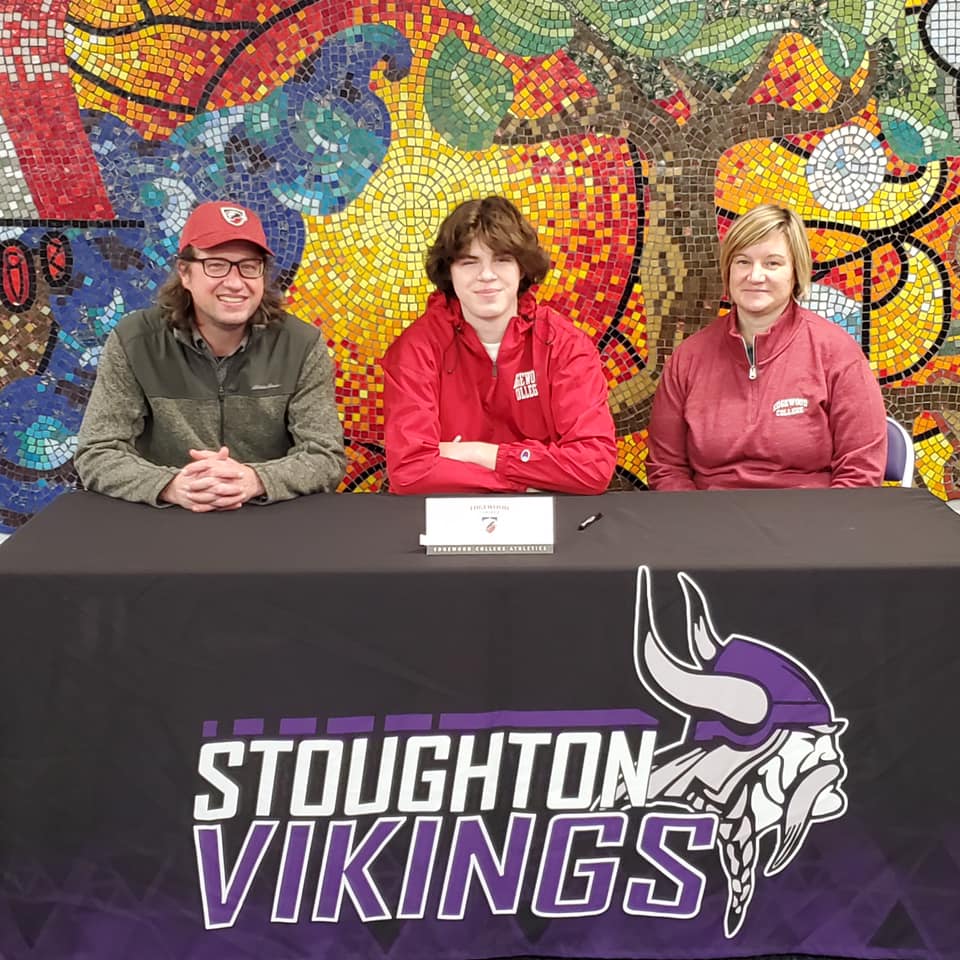
Stoughton High School senior Henry Mehring recently committed to play soccer at Edgewood College. Henry spent his youth soccer career with SAYSA, and his father, Adam Mehring, was his coach during that time. We had a chance to ask Adam about his experience as a SAYSA coach – why he started, what he and his sons got out of it – and here’s what he had to say.
At what age did Henry join SAYSA, and when did you start coaching?
Henry started playing soccer for SAYSA in second or third grade; I think I started coaching in SAYSA when he was in fourth grade. Our other boys have also played in SAYSA, and I have coached one or more of their teams most years since about 2012.
Did you have any experience with soccer prior to getting involved with SAYSA?
I played soccer from fourth through eighth grade in a non-traveling Kiwanis league where we wore sweatpants and baseball cleats, and our jerseys were colored T-shirts with our sponsor’s name across the front. There were no competitive club teams in my area while I was growing up, but, by coincidence, my high school’s soccer program started my freshman year. I’ve watched the World Cup since my high school years, but I didn’t have many opportunities to watch soccer in person or on TV until well into adulthood.
What made you decide to be a SAYSA coach?
A team didn’t have a coach, and the board put out a call for volunteers. Having watched countless youth baseball, football, basketball, and soccer games, I figured I could probably do the job as well as anyone else. As a parent, there are so many opportunities to volunteer for jobs you don’t know about, so I decided I might as well step up and do something I do know something about.
What did you enjoy most about coaching for SAYSA?
Getting to know the boys and girls on the various teams and watching them develop into young adults; coming to the realization that everyone progresses along their own path and at their own rate; seeing that hard work, dedication, and perseverance really do pay off. With a little guidance and encouragement, all kids will make progress. After trying to get a group of middle schoolers to focus throughout 90-minute practices two or three times a week, I will always have a much deeper appreciation for what our kids’ teachers do all day, every day.
How do you think having a parent as a coach contributed to Henry’s development as a player (and perhaps otherwise)?
I don’t think the boys felt any extra pressure because I was one of their coaches, but I do think they felt I was supporting something they were interested in. As a parent, I was able to shift the focus from winning at all costs (and the anxiety and frustration that comes with that perspective) to simply getting better; more so than their win-loss records, when they look back on their youth soccer careers in a few years, I hope the players I’ve coached will remember that they enjoyed being part of a team.
I recognized it wasn’t my job to develop players for the national team, but I could cultivate at least a few lifelong soccer fans and maybe a couple of players who would extend their playing days beyond high school. I’d also like to think they learned that youth sports is about being active, learning empathy and teamwork, and seeing how your actions have consequences–you’ll get out of it whatever you put into it.
Perhaps the Mehrings’ experience will inspire you to coach. If you’re interested, please contact your age commissioner. Coaches receive a reimbursement for a portion of their player’s registration fees!